British and Irish Lions: Are the Lions sport's strangest concept?
- Published
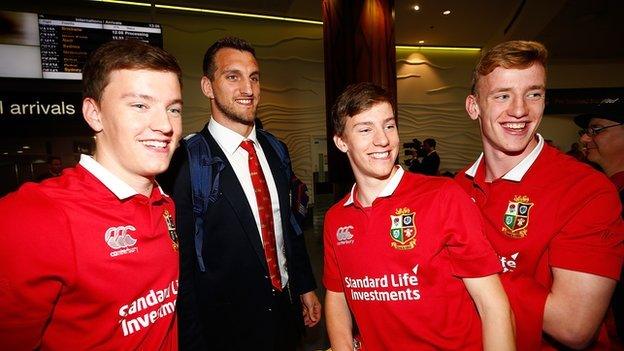
Sam Warburton is attempting to achieve a first in captaining the Lions to back-to-back series wins
British and Irish Lions 2017 |
|---|
Date: 3 June - 8 July Venue: New Zealand |
Coverage: Live text commentary on every match on the BBC Sport website and mobile app. |
Sam Warburton's 48-hour journey to Auckland, featuring business-class air travel and stopovers in Dubai and Melbourne, was described this week as "epic"., external
Robert Seddon would have something to say about that.
When Seddon led the British and Irish Lions on their first ever tour in 1888, he and his team-mates arrived in Australia after 42 days at sea, with 300 stoats and weasels - tasked with bringing the local rabbit population under control, external - as fellow passengers.
The world has certainly changed since then, but the Lions - albeit these days lacking a cargo of ruthless little mustelids - remain at their core the same: a composite side featuring the best players from England, Wales, Scotland and Ireland, touring a southern-hemisphere stronghold every four years.
As the current class embark on their New Zealand trip, how has a team that began as a Victorian-era mix-and-match Franken-side not only survived, but thrived?
And are the Lions, ultimately, an endangered species?
British and Irish Lions greeted by haka in New Zealand airport
A team like no other
Cross-sport comparisons with the Lions always fall short.
Europe's best golfers come together every two years to represent the continent in the Ryder Cup. But in a largely individual sport, there are not the same national allegiances to be set aside.
The State of Origin rugby league sides and NBA All Star basketball games show a fine disregard for club loyalties, but these are domestic affairs that lack the jet-set international dimension of the Lions.
Scour the sporting world high and low and you'll find there is nothing quite the same.
'One player nearly took off another's foot with a shotgun'
So what does it mean to become a Lion?
Jeremy Guscott was called up to the Lions' tour of Australia in 1989 as a 23-year-old centre with just one England cap to his name.
He started both of the Test victories, and played in all six Tests on the subsequent tours of New Zealand and South Africa, famously kicking the decisive drop-goal against the Springboks in 1997.
"It was absolute, all-encompassing euphoria when I got selected for the first time," he told BBC Sport.
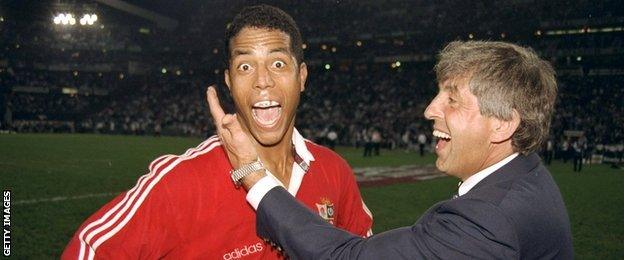
Guscott is congratulated by legendary coach Sir Ian McGeechan after landing a series-clinching drop-goal against the Springboks in 1997
"And because of what I experienced then, I would have almost chopped off an arm to get on the tours in 1993 and 1997.
"Everyone has to be selfless, helping team-mates to be the best they can, while at the same time competing furiously for places.
"It is very hard to do because it is an incredibly competitive environment. But the more that people buy into that, the greater chance there is of success.
"That is the unique balance with a Lions tour."
The standard of play may be be stratospheric, but the touring traditions of scrapes, high-jinks and horseplay are as true for the Lions as for Old Rubber Duckians 3rd XV.
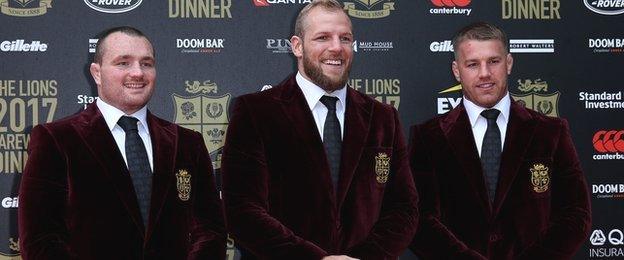
Ken Owens, James Haskell and Sean O'Brien sport some of the 2017 Lions' extensive wardrobe
Whether it be 1974 captain Willie John McBride asking an irate hotel manager just how many police would be arriving to quell his team-mates' partying, external or full-back Neil Jenkins decked out as Prince Ruprecht, external from the film 'Dirty Rotten Scoundrels' in 1997, there is a human and occasionally hell-raising side to the tours.
"There are moments which stay with you forever, both on and off field," remembers Guscott.
"There was an afternoon in New Zealand where we - and those involved will remain nameless - were out on a team-building activity and one player very nearly took off another's foot with a shotgun.
"He missed by a metre or so. The alternative didn't bear thinking about!"
The series that could have broken the Lions
As Warren Gatland's squad headed off in the glare of the media spotlight, kitbags loaded with £595 red velvet jackets provided by one of their many sponsors, it is funny to recall that it was once feared 'professionalism' could kill them off.
The end of the sport's amateur status in 1995 prompted predictions that the Lions' days were numbered, as clubs would be reluctant to allow paid employees to tour, improved annual Six Nations battles would dominate the conversation and a burgeoning World Cup would suck up the corporate cash.
So the theory went, at least.
"There are two reasons that the Lions survived the advent of professionalism," explains Tony Collins, professor at De Montfort University's International Centre for Sports History and Culture and author of 'The Oval World: A Global History of Rugby'.
"The first is that the 1997 Lions tour of South Africa - two years after the game turned professional - was incredibly successful.
"It was a great series, that showed the credibility of a Lions tour to supporters and the esteem it was held in by the players themselves.
"The other thing is just as important, but less recognised. Although a lot has changed, there is still tremendous continuity in the way that people view the world and their place in it.
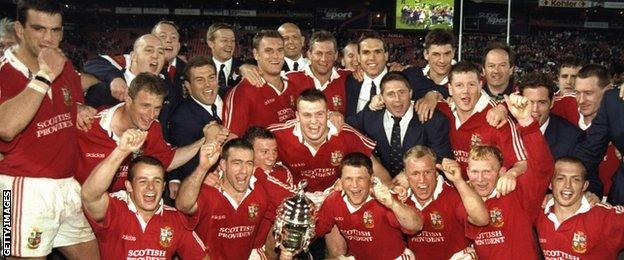
The 1997 Lions won the second Test and series despite being outscored three tries to none in Durban
"The Lions represent the continuing legacy of the British Empire. That still has tremendous resonance in New Zealand, Australia and South Africa.
"When the first tours went, these were still very young countries and, in many ways, they still define themselves by their ability to compete with and defeat the British.
"Back home in Britain, despite the devolution of powers to the various constituent parts, there is still a nostalgia for British-ness in lots of places."
While the Lions have thrived, the advent of professionalism has had an impact on another of the sport's great composite teams: the Barbarians.
Back in 1973, the Barbarians beat the All Blacks in front of 51,000 in what was a full-blooded contest at the very highest level of the game.
Contrast that with the Barbarians' most recent outing last month, which saw the free-running invitational side comfortably beaten in what amounted to a pre-tour loosener for a second-string England side.
A changing challenge
The challenge for the Lions now is to ensure they can marry their romantic past with modern realities.
Before the third and deciding Test on the 2013 tour of Australia, Gatland controversially dropped Irish legend Brian O'Driscoll to reunite the Welsh midfield axis of Jamie Roberts and Jonathan Davies.
In total 10 of the starting XV for that climatic match were players Gatland oversaw in his regular job as Wales head coach.
In the hours before kick-off, former Ireland hooker Keith Wood - a veteran of the 1997 and 2001 tours - accused him of fundamentally misunderstanding the Lions ethos.
"We are not seeing the blend of four teams, that is what makes the Lions phenomenal," he said.
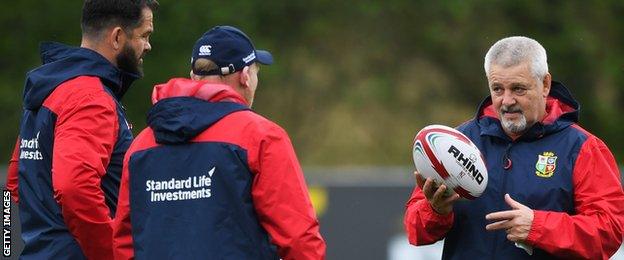
Coach Warren Gatland (right) included 16 England players, 12 Welsh, 11 Irish and two from Scotland in his initial 41-man squad, although a third Scot was subsequently called up
"It about getting the best quality out of players from these islands, not having an intransigent game-plan that is low on subtlety and simplistic from the start."
The Lions recorded a thumping 41-16 victory to win the series. Wood, though, stood by his words, claiming that the Lions is about more than just the result.
This year's Lions will play six matches in 17 days before the first Test in an intense crash-course to prepare for the planet's best - the world-champion All Blacks.
With playbooks fatter than ever, can the Lions afford to start with a blank slate rather than arrive with a pre-heated plan?
But - given the unique and broad appeal that has has seen them survive for nearly 150 years - can they also afford to disregard the old traditions?
What is clear is that the Lions' battle to hitch contemporary professionalism to timeless romance, and to knit four teams into one, makes them unique in a sporting world long since stripped of such idiosyncrasy at the top level.
- Published3 June 2017
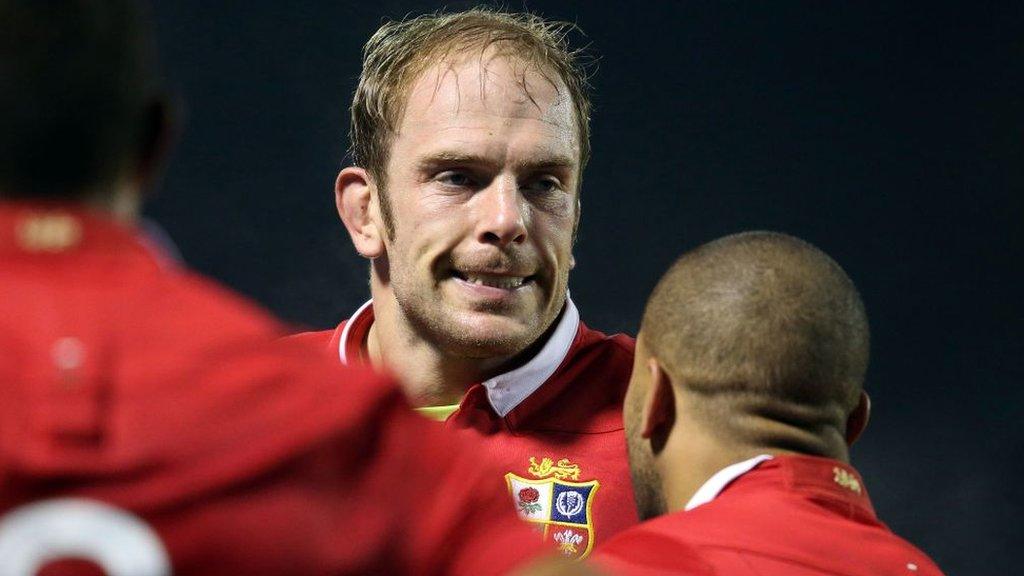
- Published1 June 2017
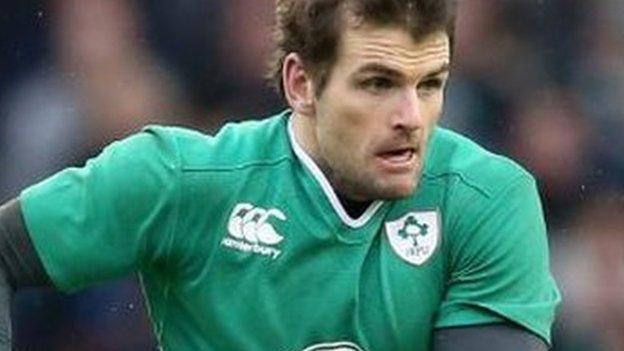
- Published1 June 2017
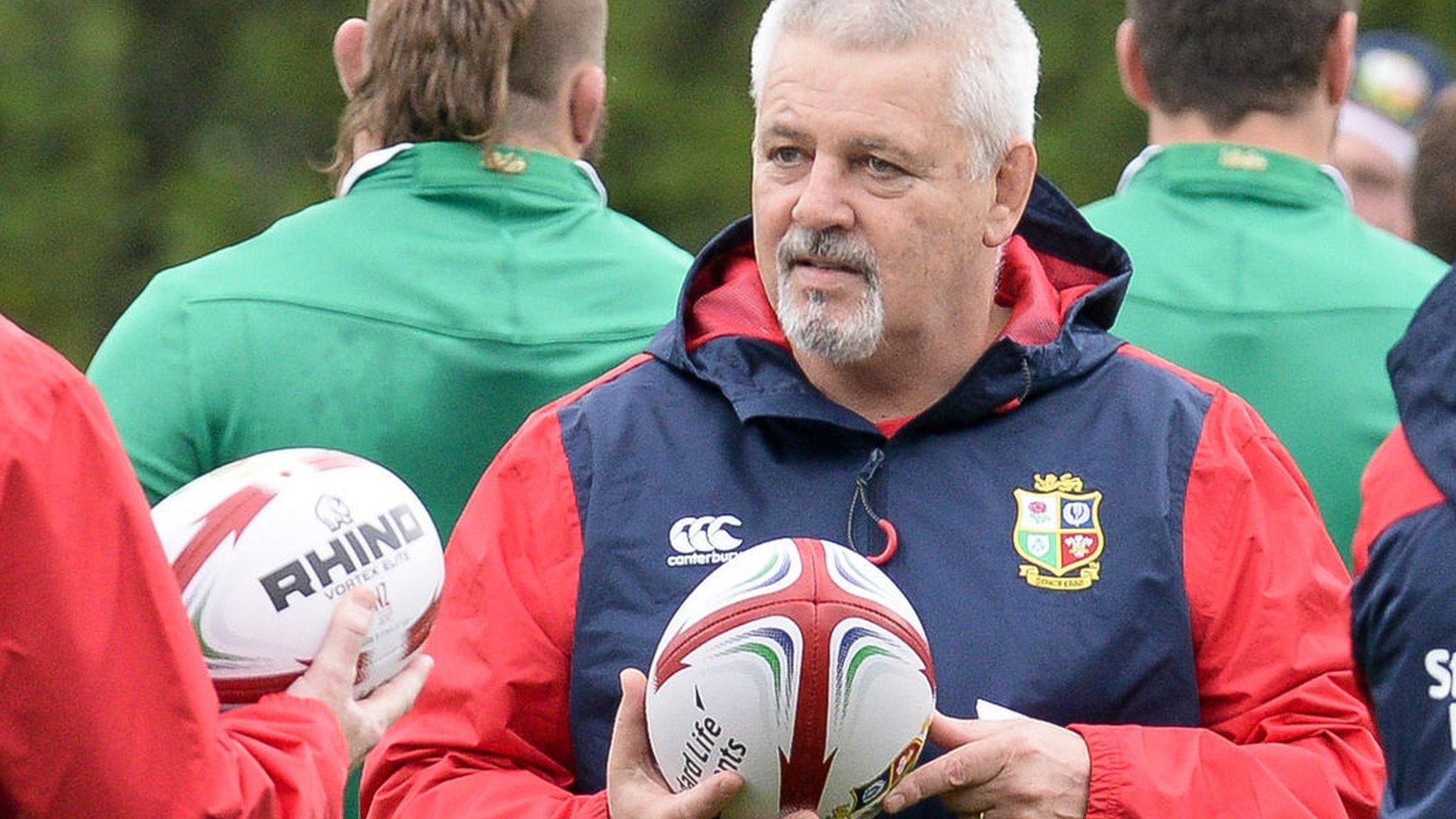
- Published1 June 2017
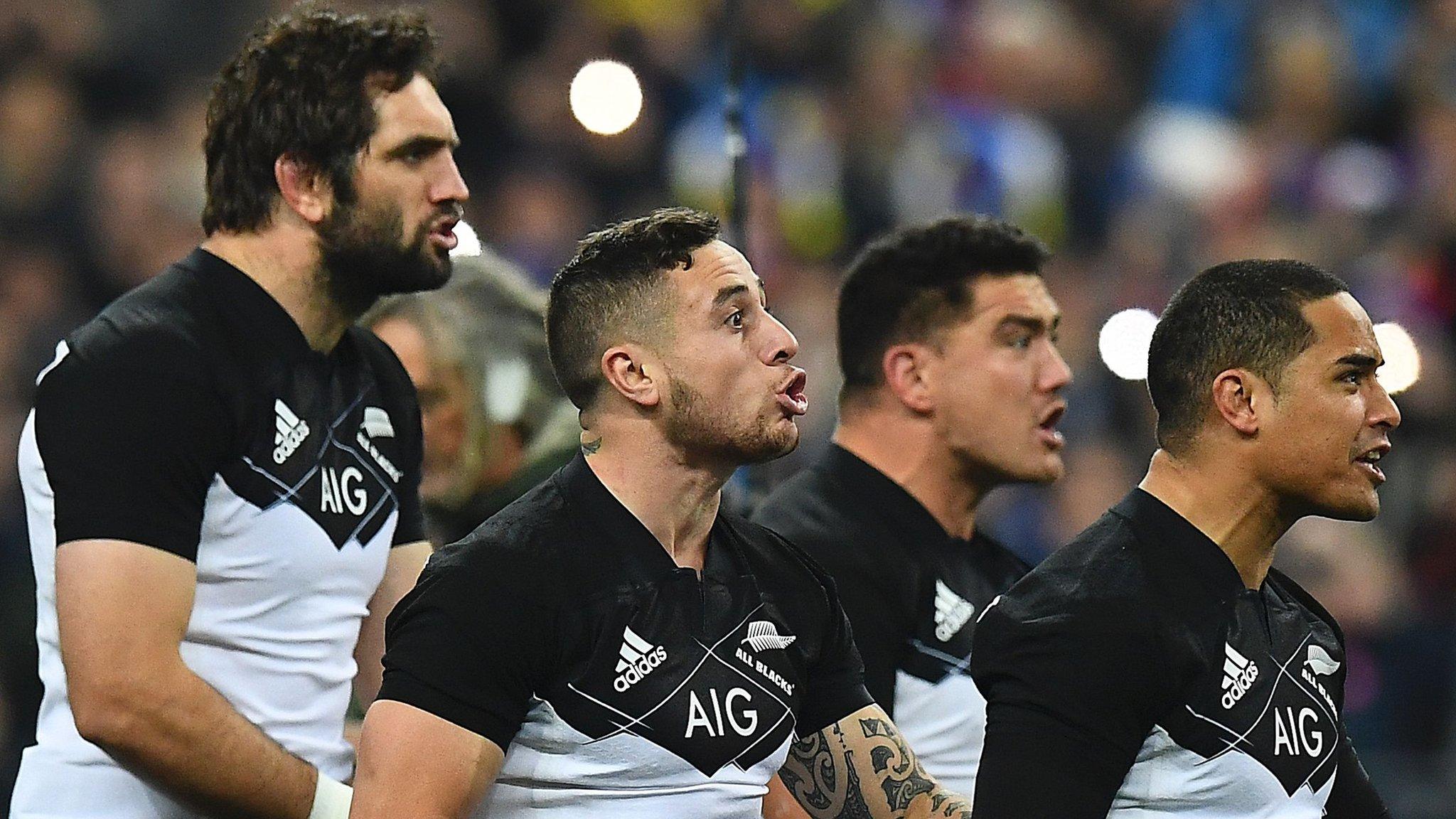
- Published31 May 2017
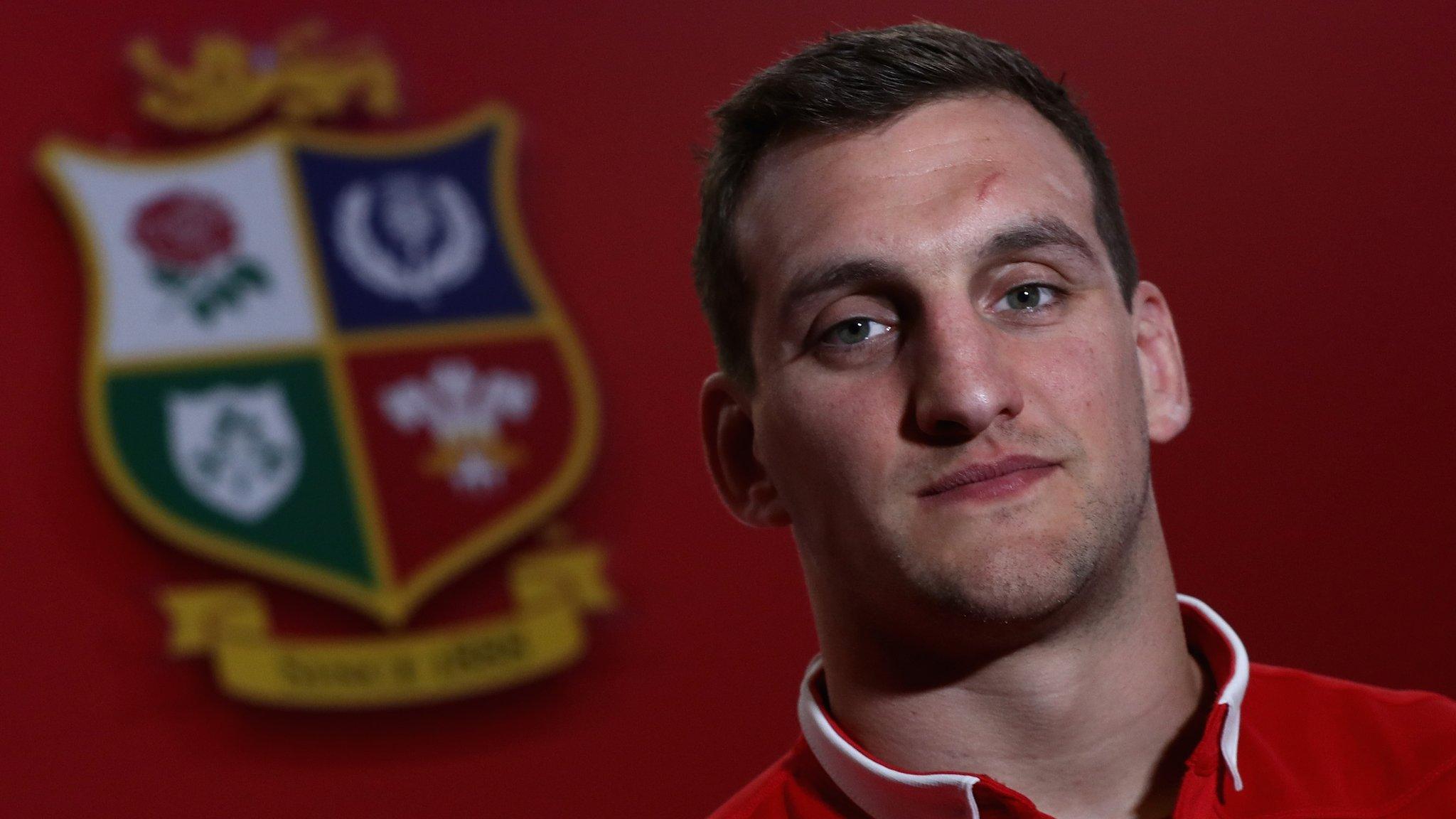
- Attribution
- Published31 May 2017
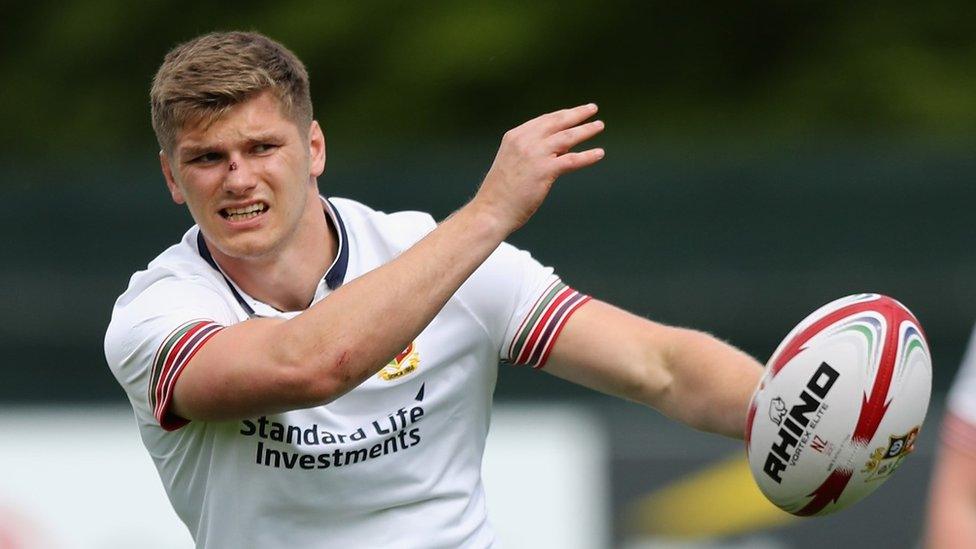
- Published31 May 2017
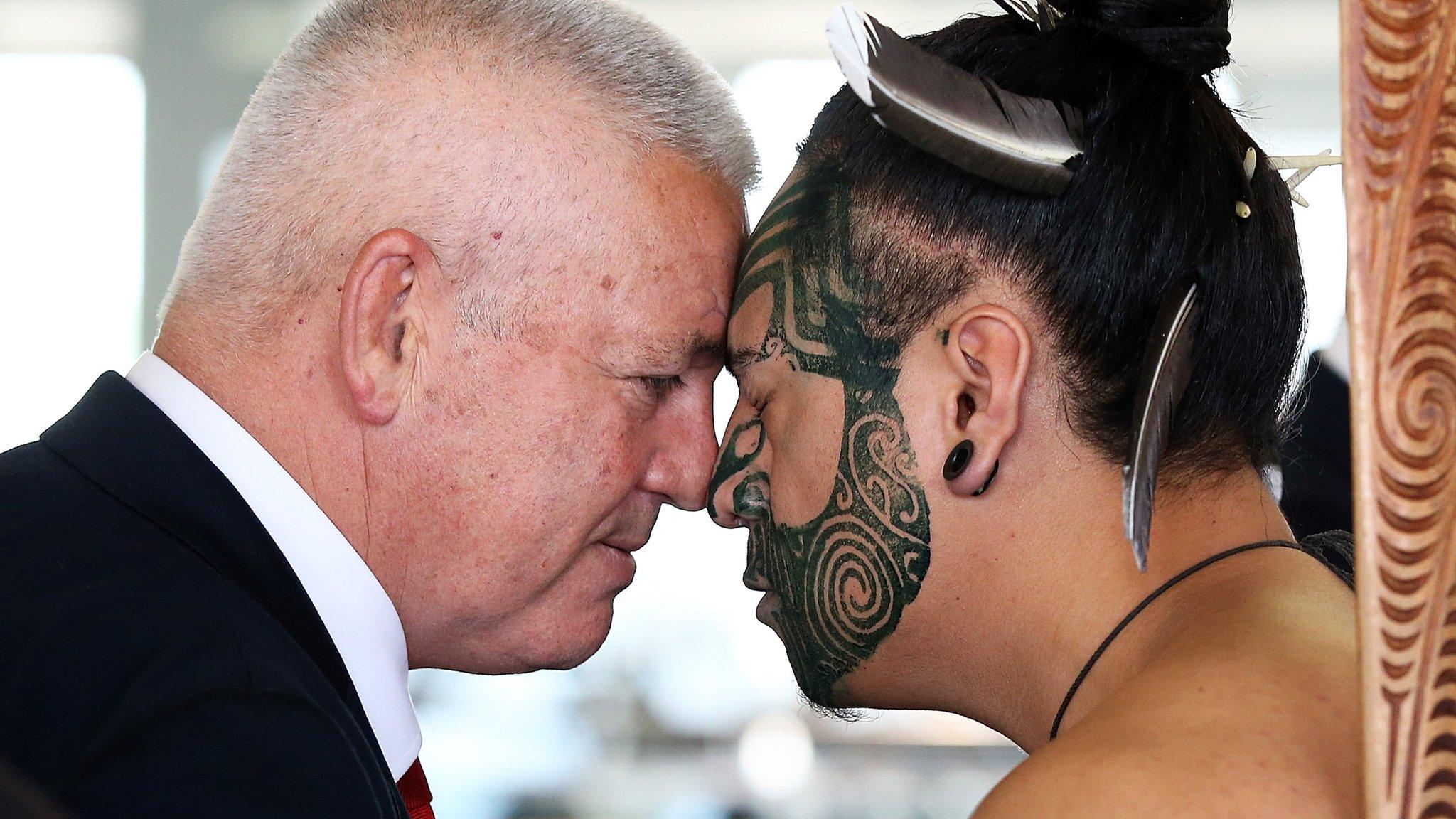
- Published18 April 2017